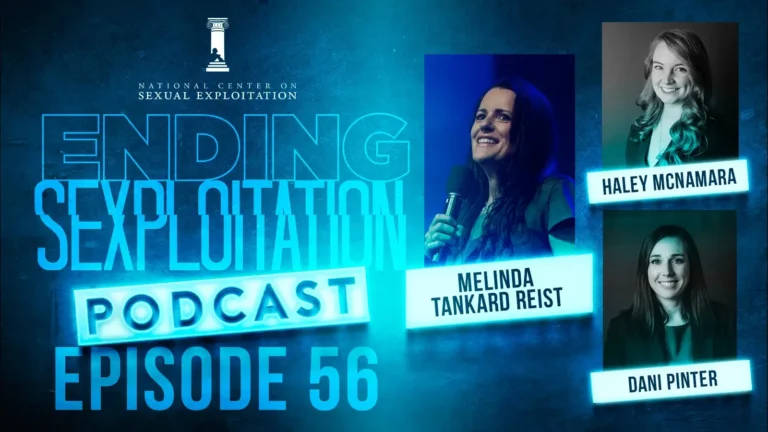A growing chorus of voices is calling attention to the strong link between pornography and sexual exploitation, and those voices are now seeing some significant progress.
Just last week the House passed historic legislation against online sex trafficking. The package to fight online sex trafficking passed by a vote of 388 to 25. If this legislation passes the Senate, it will allow victims of sex trafficking to go after their online perpetrators, and empower states Attorneys General to prosecute sex traffickers.
As the law currently stands, victims have been barred access to the civil courts, while certain Internet companies have been granted what amounts to a right to engage in criminal conduct.
“In a tragic series of court cases favoring Backpage, a classified advertising website that facilitates sex trafficking, the courts have interpreted the Communication Decency Act (CDA) to give websites posting third-party content immunity for criminal activity facilitated via their sites and denied victims of sex trafficking the right to sue the companies that facilitated and profited from their exploitation. In other words, there is now a special, elite class of sex traffickers—those who provide the organizational superstructure on which most of modern sex trafficking occurs—who can operate with impunity.”
“Many of the legal arguments in favor of Backpage have framed the issue as a matter of free speech. Ironically, it’s not the rich and powerful individuals behind these websites who are suffering from a lack of free speech, but the victims of sex trafficking whose voices have been barred from civil courts. The issue here isn’t about restricting free speech, but increasing it,” said said Lisa L. Thompson, Vice President of Research and Education for the National Center on Sexual Exploitation (NCoSE).



